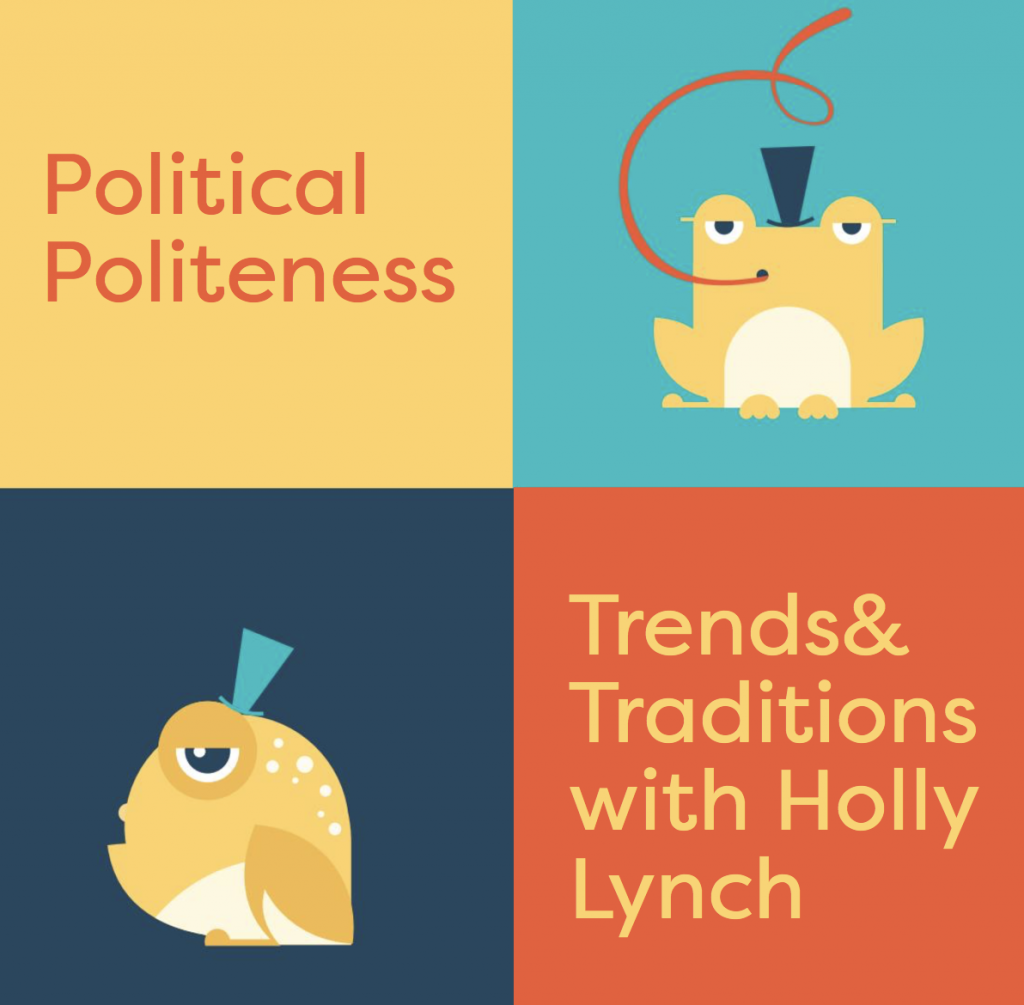
As you read in this column earlier this year, a leap year brings with it the excitement of an extra day, the Olympic Games and a presidential election. I love a leap year for all those reasons. Sadly, how-ever, I feel I’ve spent the equivalent of an extra day already this year listening to, and reading, ridiculous political arguments and watching normally solid relationships deteriorate.
Growing up, I was always told that polite conversation did not include the topics of religion, politics or money. I would still venture to say that those three topics should generally be considered private, if nothing else. Private topics, by definition, should stay private and be shared only with the people in your “circle of trust.” Of course, that’s not how it works anymore.
Through the anonymous veil of social media, all topics are fair game. I’ve seen commentary on every topic, including sex, restroom usage, politics, money, religion, and just about everything in between. We believe (incorrectly) that a post is temporary and faceless because we’re doing it from the privacy of our phones and laptops. Topics my grandmother (and even my parents) would refrain from discussing are posted and shared in public. While I appreciate my First Amendment right to discuss any topic, it seems many have forgotten that the flip side to expressing one’s opinion is letting to the op-posing side have the same opportunity. To fully respect the right of free speech, then everyone must also respect the people who oppose their opinions. I’m not asking you to understand or accept an opposing viewpoint, but simply to respect the PERSON who expresses it.
So, before engaging in political conversation for the next few months (and social media is a conversation as long as you allow comments, likes and feedback), consider a few key points:
What is the end result of what you’re about to say? Are you looking for information, do you want to change someone’s opinion or are you simply venting your own frustration? If you consider your own motivation, you may just decide that the commentary you’re about to embark on isn’t appropriate at all (I call it “type and delete”). Make sure you know your own mind and have some facts ready to back up your thinking. There are a lot of “news” sites available, but make sure to check sources yourself. Do not believe everything you read or hear, especially if it was a sponsored story on Twitter or Facebook. Just because your best friend reposted a story does not make it true. Just because a “news” agency reports a story does not make it true. Let’s all take a lesson from Journalism 101 (which so many journalists appear to have skipped) – check the facts and then double check your facts.
At the end of the day, you have to decide what you want to believe is true and then decide how forthright you want to be in sharing those opinions. Again, consider what can be gained from the conversation. If you are only wanting to vent, it’s best to keep that venting to your private circle. If you want to gain information, make that clear so you are engaging those who want to teach. If you want to persuade others to switch to your opinion, be prepared for op-position and be respectful.
Which leads me to my next point: Stop calling each other names. If you post something political and someone disagrees with you, do not suddenly become a kindergartener again and stick out your tongue and call the other per-son stupid. If you’re old enough to vote, you’re old enough to argue intelligently. Even if the candidates themselves call each other names, we the voting populace must show more class. Maybe when we can respect each other, even when we don’t respect the opinions of others, we can generate a better cast of candidates to choose from. A true statesman (or woman!) might emerge from this mess of a political cycle. Perhaps that might be the lesson, the take away, from this (for lack of a better word) interesting season.
Keep in mind that many people do not want to discuss politics. I am one of them. I have opinions (everyone does!). But, I choose to share them with people who I know will respect me, even when they disagree with my thinking. A political statement on social media has very little room to create meaningful discourse and often creates unsophisticated chaos.
If you choose to post your political opinions in hopes of swaying others to your “side,” just know that you will not win over every one of your friends. You may even alienate some. You can like a person with whom you strongly disagree. Trust me on this – every one of your friends does not agree with you on every thought and opinion you have. But your real friends will respect you as a person anyway.
Lastly, make sure that you have an exit strategy if you’re pulled into a conversation you don’t want to be involved in. Agreeing to disagree is a trite response, but if you genuinely do not want to be engaged in a conversation where you disagree on an issue, the response is at least truthful. And if someone says that phrase to you, then it’s time to change the subject.
By the end of this leap year, we will have new elected officials. Whether your candidate wins or not, remember to be either a gracious winner or a gracious loser. The day after the election, life will go on and you will want your circle of trust to be complete. After all, we get to do this again in four years.
Holly Lynch is the owner of The Season Events, a full service catering, event planning and design company located at
300 Glenn Milner Blvd. in Rome.
*The views expressed in this column are those of the writer, and do not represent the opinions of V3 Magazine.



